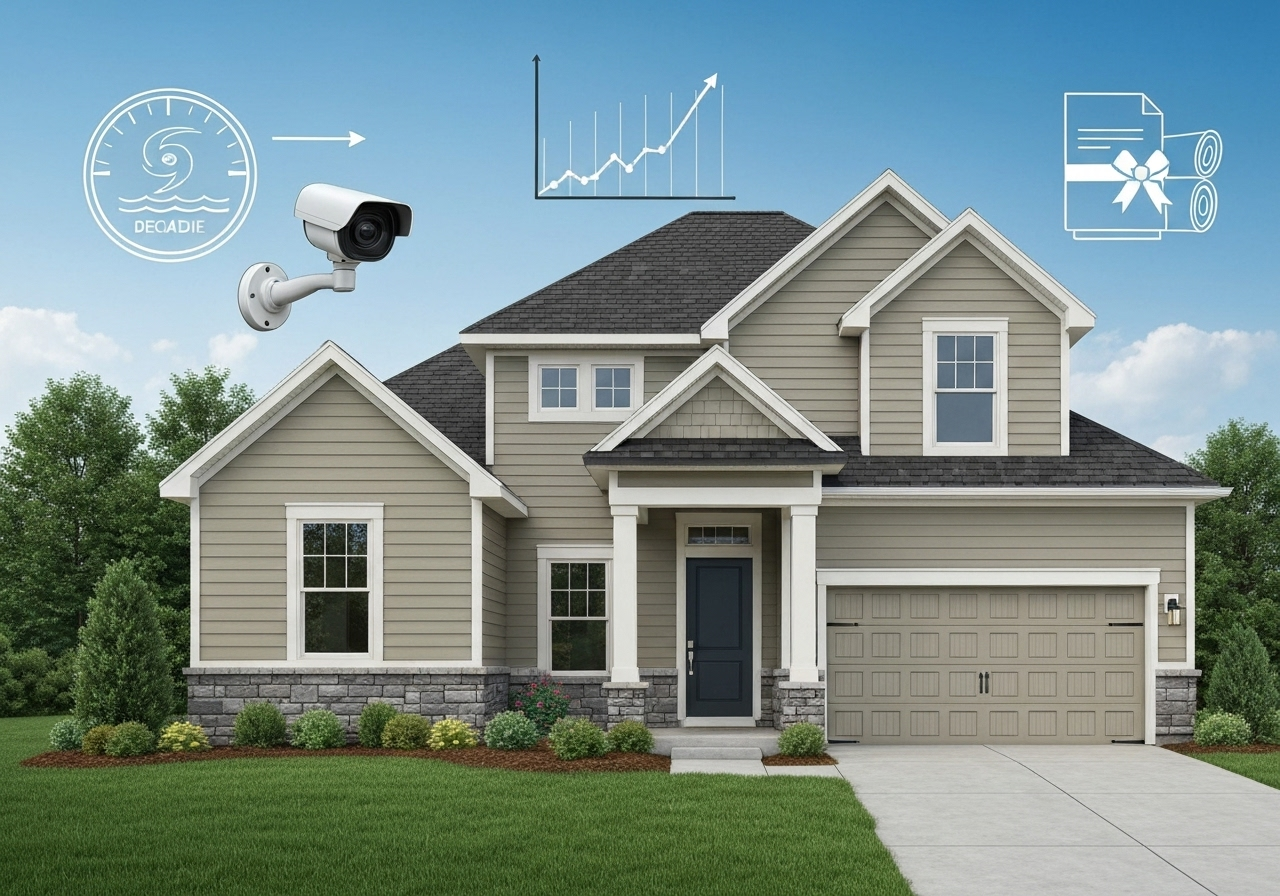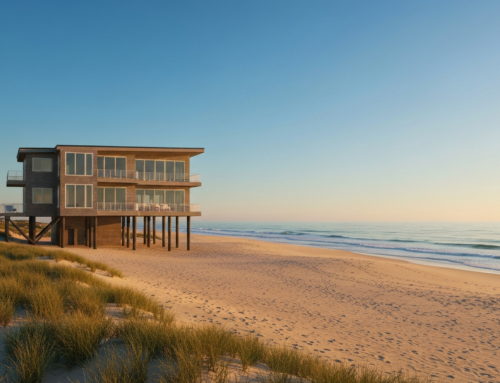Understanding Your Homeowners Insurance Costs with Beach Insurance LLC
Navigating the world of homeowners insurance can feel complex, especially when trying to understand the various factors that impact your cost of homeowners insurance. Your premium isn’t a random number; it’s a carefully calculated sum based on a multitude of variables designed to reflect the risk an insurer takes on by covering your property. At Beach Insurance LLC, we believe in empowering homeowners with clear, actionable insights into how these costs are determined, helping you make informed decisions and potentially unlock significant savings.
Key Factors That Impact Your Cost of Homeowners Insurance
Homeowners insurance premiums are influenced by a broad range of elements. These can broadly be categorized into characteristics of your home, your personal history, the policy choices you make, and external environmental factors. Understanding these categories is the first step toward gaining control over your insurance expenses.
How Your Home’s Location and Characteristics Influence Premiums
The physical aspects of your home and where it’s located play a significant role in your insurance rates. Insurers assess the likelihood of various perils based on these details.
- Location: Your geographic location is paramount. Homes in areas prone to natural disasters like hurricanes, wildfires, or tornadoes often face higher premiums due to increased risk. Proximity to a fire station and the quality of local fire departments can also influence rates, as can your specific ZIP code.
- Age and Construction: Older homes might have outdated plumbing, wiring, or roofing, which can lead to higher risks and thus higher premiums. The materials used in your home’s construction also matter; for instance, homes built with more fire-resistant materials might see lower rates. The cost to rebuild your home is a major component, as this directly affects the dwelling coverage amount.
- Property Features: Certain features, while desirable, can increase risk. A swimming pool, for example, elevates liability risk. Structures like trampolines, specific dog breeds, or even the presence of a wood-burning stove can also influence your premium. Conversely, safety features like a home security system, smoke detectors, and fire sprinklers can often lead to discounts.
The Impact of Your Personal History and Policy Choices on Rates
Beyond your home, your personal history as a homeowner and the specific coverage options you select significantly affect your insurance costs.
- Claims History: A history of frequent or large claims can signal higher risk to insurers, leading to increased premiums. It’s often wise to consider whether filing a small claim is truly worth the potential long-term impact on your rates.
- Credit-Based Insurance Score: In many states, insurers use a credit-based insurance score as a factor in determining premiums. This score is a statistical tool that helps predict the likelihood of future claims. A higher score often correlates with lower premiums.
- Deductible Amount: Your deductible is the amount you pay out-of-pocket before your insurance coverage kicks in. Choosing a higher deductible typically results in a lower premium, as you’re taking on more of the initial financial risk.
- Coverage Limits: The amount of coverage you choose for your dwelling, personal property, and liability also directly impacts your premium. Opting for higher coverage limits provides more protection but comes at a greater cost.
Surprising Elements That Affect Your Home Insurance Rate
While some factors are obvious, others might come as a surprise when you’re looking at the factors that impact your cost of homeowners insurance.
- Marital Status: Some insurers offer lower rates to married couples, as statistical data may suggest they file fewer claims.
- Bundling Policies: Combining your home and auto insurance with the same provider, like Beach Insurance LLC, can often result in significant multi-policy discounts. This is a common and effective way to save. You can unlock big savings by bundling home and auto insurance.
- Home-Based Businesses: If you run a business from your home, your standard homeowners policy might not cover business-related losses or liabilities. This could necessitate additional coverage, affecting your overall insurance expenses.
Navigating Homeowners Insurance with a Mortgage vs. Owning Outright
A common point of confusion for homeowners revolves around the distinction between homeowners insurance and mortgage insurance. Understanding this difference is crucial, especially when considering the difference between homeowners insurance and mortgage insurance.
Homeowners Insurance is designed to protect your physical home and your belongings from covered perils, such as fire, theft, or natural disasters. It also provides liability coverage in case someone is injured on your property. If you have a mortgage, your lender will almost certainly require you to carry homeowners insurance to protect their financial interest in the property.
Mortgage Insurance (PMI – Private Mortgage Insurance), on the other hand, protects the lender, not you. It’s typically required when you make a down payment of less than 20% of the home’s purchase price. PMI safeguards the lender in case you default on your mortgage loan. Unlike homeowners insurance, PMI is not tied to protecting the physical structure or your personal assets.
Even after you pay off your mortgage, maintaining homeowners insurance is highly advisable. While the lender no longer requires it, it remains your primary financial protection against unforeseen damages or liabilities, protecting your significant investment.
Practical Tips to Unlock Savings on Your Homeowners Insurance
While many factors that impact your cost of homeowners insurance are beyond your immediate control, there are several proactive steps you can take to lower your premiums.
- Increase Your Deductible: As mentioned, a higher deductible means lower monthly premiums. Just ensure you have the funds readily available to cover it if a claim arises.
- Bundle Your Policies: Consider purchasing all your insurance policies (home, auto, umbrella) from a single provider.
- Improve Home Security: Installing alarm systems, deadbolt locks, smoke detectors, and carbon monoxide detectors can earn you discounts.
- Reinforce Your Home: In disaster-prone areas, making your home more resilient (e.g., storm shutters, reinforced roofs) can lead to significant savings.
- Maintain Your Home: Regular maintenance, like preventing frozen pipes or addressing roof issues, can prevent costly claims. For example, understanding how to avoid unnecessary cold weather claims can save you money and headaches.
- Review Your Policy Annually: Your circumstances change, and so do insurance offerings. Review your policy with Beach Insurance LLC annually to ensure your coverage is optimal and you’re not missing out on new discounts.
Frequently Asked Questions About Homeowners Insurance Costs
Why do homeowners insurance rates keep rising?
Rates can increase due to various factors, including the rising cost of building materials and labor, an increase in severe weather events, higher claims frequency, and inflation.
Does my credit score really affect my home insurance rate?
Yes, in most states, insurers use a credit-based insurance score as one factor to predict the likelihood of future claims, which can influence your premium.
Can I lower my homeowners insurance by making my home smarter?
Often, yes. Smart home devices like leak detectors, smart smoke alarms, and advanced security systems can qualify you for discounts because they help mitigate risks.
Protecting Your Investment with Beach Insurance LLC
Understanding the many factors that impact your cost of homeowners insurance is key to protecting your most valuable asset without overpaying. At Beach Insurance LLC, we’re dedicated to helping homeowners like you navigate these complexities. Our experienced team can assess your unique situation, explain how various factors affect your premium, and help you explore all available discounts to secure comprehensive coverage at a competitive rate. Don’t leave your home’s protection to chance; ensure you have the right coverage tailored to your needs.
Visit our Contact Us page.






